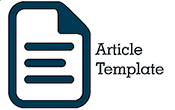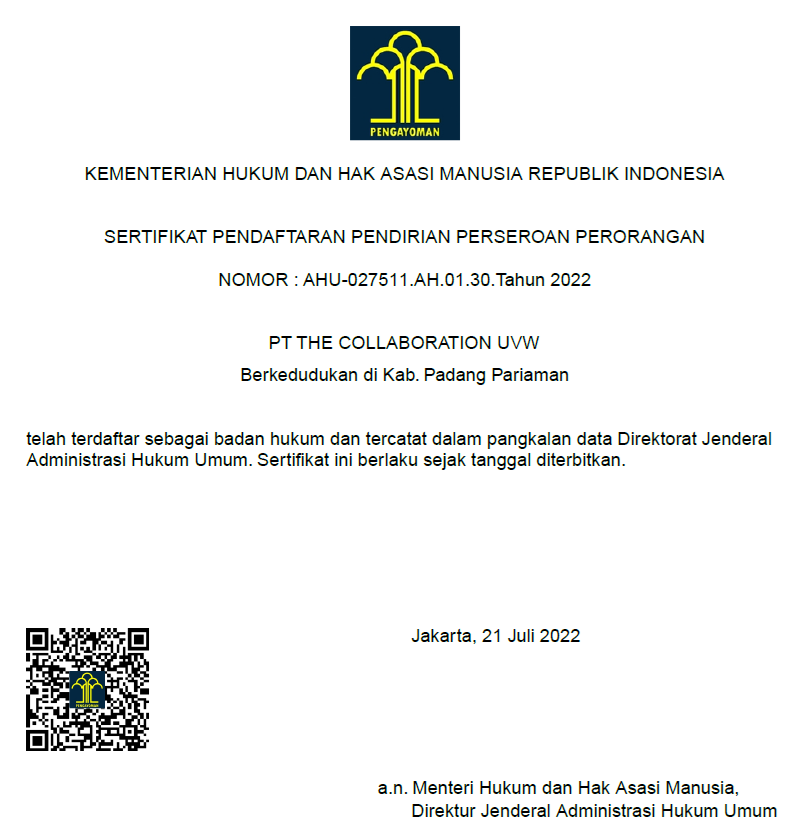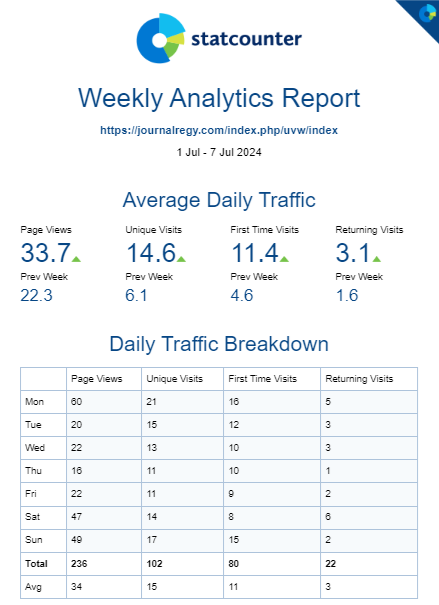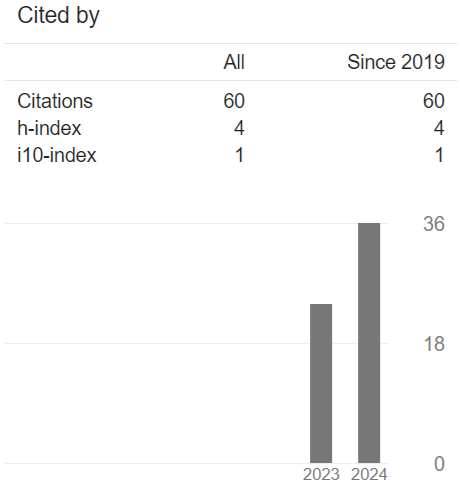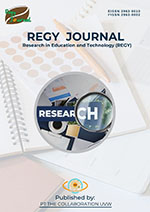Analysis of teaching module development needs based on teaching factory (TEFA) to improve entrepreneurial characteristics
DOI:
https://doi.org/10.62590/regy.v2i2.111Keywords:
teaching modules, Teaching Factory (TEFA), entrepreneurship, vocational educationAbstract
The aimed of this research was to analyze and describe the need for developing teaching-based modules of Teaching Factory (TEFA) to improve the characteristics of entrepreneurs who are ready to work and produce products that comply with industry standards to support the implementation of the independent curriculum. The research method used was research and development. This research focuses on identifying student teaching module needs that are expected to meet national curriculum standards and regional potential, involving an understanding of the educational context, industry demands, and student needs. The data collection techniques that the researchers used were observation, interview, and questionnaire. The research results indicated that there was a significant need to develop teaching modules so that they can accommodate diverse students’ needs customized to the level of difficulty and interest of students. Teaching modules should be designed to provide students with opportunities to develop 21st-century skills such as skills critical thinking, creativity, communication, and cooperation.
References
Amar, A. F., Hidayat, D., & Suherman, A. (2016). Penerapan model pembelajaran teaching factory 6 langkah (model TF-6M) untuk meningkatkan motivasi berprestasi siswa di SMK. Journal of Mechanical Engineering Education, 2(2), 189-198. https://doi.org/10.17509/jmee.v2i2.1479.
Arpan, M., & Sadikin, S. (2020). Media pembelajaran interaktif perangkat keras komputer. INVOTEK: Jurnal Inovasi Vokasional dan Teknologi, 20(2), 43-50. https://doi.org/10.24036/invotek.v20i2.741.
Batubara, Q. N. M. (2023). ICT-based needs analysis of learning arts and culture in middle school at Sunggal. Research in Education and Technology (REGY), 2(1), 38-41. https://doi.org/10.62590/regy.v2i1.96.
Borg, W. R., & Gall, M. D. (1989). Educational research: An introduction, fifth edition. New York: Longman.
Burke, C. M., Montross, L. P., & Dianova, V. G. (2024). Beyond the classroom: An analysis of internal and external factors related to students’ love of learning and educational outcomes. Data, 9(6), 81-97. https://doi.org/10.3390/data9060081.
Dewi, M. (2018). Need analysis pengembangan model pembelajaran berbasis proyek e commerce pada mata kuliah kewirausahaan. Jurnal Pendidikan dan Teknologi Informasi, 5(1), 71-80.
Dhani, R. K., & Kristiani, K. (2021). The effectiveness of creative products and entrepreneurship learning and teaching factory to prepare for job creator in the industrial revolution era 4.0. International Journal of Multicultural and Multireligious Understanding, 8(7), 285-292.
Dwijayanthi, K. D., & Rijanto, T. (2022). Implementation of teaching factory (TEFA) in vocational school to improve student work readiness. Journal of Vocational Education Studies, 5(1), 61-71.
Feladi, V., Arpan, M., & Verawardina, U. (2017). Pelatihan pembuatan media pembelajaran berbasis animasi di SMP Negeri 2 Siantan Kabupaten Mempawah. Gervasi: Jurnal Pengabdian kepada Masyarakat, 1(1), 32-42. https://doi.org/10.31571/gervasi.v1i1.597
Hernando, F., Basri, I. Y., Alwi, E., & Purwanto, W. (2022). Pembuatan video pembelajaran praktikum pada mata pelajaran Listrik Elektronika. Research in Education and Technology (REGY), 1(1), 68-75. https://doi.org/10.62590/regy.v1i1.73.
Lestari, E., Rusdarti, R., & Widiyanto, W. (2021). The teaching factory-based BMC application model for improving students’ creativity of Central Java public vocational high schools in Semarang. Journal of Economic Education, 10(1), 62-69.
Maruanaya, R. F., Karuna, K., Tuhumena, W. A., & Maruanaya, G. J. T. (2021). Implementation of teaching factory to improve entrepreneurial competence of vocational high school students. Koli Journal, 2(1), 1-9.
Mourtzis, D., Panopoulos, N., Angelopoulos, J., Zygomalas, S., Dimitrakopoulos, G., & Stavropoulos, P. (2021). A hybrid teaching factory model for supporting the educational process in covid-19 era. Procedia Cirp, 104, 1626-1631.
Nyoni, M., Nyoni, T., Bonga. & Garikai, W. (2017). Factors affecting students’ academic achievement in Zimbabwe's rural secondary schools: A case study of Marimasimbe secondary school in Jiri Community. Dynamic Research Journals’ Journal of Economics and Finance (DRJ-JEF), 2(3),1-15.
Perwiranegara, A. A. (2022). Teaching factory management in the industrial era 4.0 in Indonesia. International Journal of Science and Society, 4(3), 151-162.
Pratiwi, R., Cahyana, A., Sastrawan, U., & Pratama, A. A. (2022). Teaching factory (TEFA) learning strategy and risk management at SMK Negeri 1 Garut. International Journal of Tourism and Hospitality in Asia Pasific (IJTHAP), 5(3), 65-75.
Purwanto, A., Novitasari, D., & Asbari, M. (2022). The role of leadership, teaching factory (TEFA) Program, competence of creative products and entrepreneurship on entrepreneurial interest of the vocational school students. International Journal of Social and Management Studies, 3(5), 58-64.
Putri, M., Rahmiati, R., Dewi, M., & Irfan, D. (2022). Praktikalitas penggunaan e-modul dalam pembelajaran nail art. JRTI (Jurnal Riset Tindakan Indonesia), 7(1), 60-62. https://doi.org/10.29210/30031508000.
Rohaeni, E., Trisnamansyah, S., Wasliman, I., & Sauri, S. (2021). Implementation of teaching factory in improving the competence of vocational high school students (SMK). Journal of Sosial Science, 2(5), 598-609.
Sari, L. D. K., Ambarsari, I. F., Putra, E. D., & Hasanah, N. (2023). The influence of external factors, school scope on student’s learning outcomes in mathematics class X the department of Science at SMAN 1 Panji. Journal on Research and Review of Educational Innovation (JRREI), 1(1), 43-53. https://doi.org/10.47668/jrrei.v1i1.775.
Setiawan, N. A., Murtini, W., & Kristiani, K. (2022). Enhancement of students' interest in entrepreneurship: Based on creative entrepreneurial products through teaching factory (TEFA) learning. International Journal of Multicultural and Multireligious Understanding, 9(5), 257-262.
Sinay, H., Wenno, I., Pulu, S., Untajana, S., & Dulhasyim, A. B. (2023). Factors affect students’ science learning outcomes. International Journal of Education, Information Technology, and Others, 6(2), 245-260. https://doi.org/10.5281/zenodo.7901708.
Siswanto, E., Samsudi, S., Supraptono, E., & Sutopo, Y. (2022). The role of teaching factory (TEFA) management on entrepreneurship skill of vocational school students: A structural equation modelling analysis. Res Militaris, 12(4), 578-582.
Sugiyono. (2016). Metode penelitian kuantitatif, kualitatif, dan R&D. Bandung: Alfabeta.
Sulistiyarini, D., Bibi, S., Fatmawati, E., & Arpan, M. (2018). Pelatihan pembuatan media pembelajaran interaktif di SMP dan SMK Mandiri Pontianak. Gervasi: Jurnal Pengabdian kepada Masyarakat, 2(1), 39-46. https://doi.org/10.31571/gervasi.v2i1.811.
Sunggoro, S., Ulfiah, Ghoer, H. F., & Kosasih, U. (2022). Factory learning management in growing the entrepreneurship of vocational school students in Karawang District (case study at SMK Rismatek Karawang and SMK Lentera Bangsa Karawang). Journal of Industrial Engineering & Management Research, 3(3), 277-292. https://doi.org/10.7777/jiemar.v3i3.368.
Supardi, S., Putra, R. K., Iqbal, M., & Toni, K. (2023). Development of mobile AR applications as a science learning media in increasing junior high school students’ interest in learning. Research in Education and Technology (REGY), 2(1), 1-5. https://doi.org/10.62590/regy.v2i1.93.
Undang-Undang Republik Indonesia Nomor 20 Tahun 2003 tentang Sistem Pendidikan Nasional. Lembaran Negara Republik Indonesia Tahun 2003 Nomor 78. Jakarta: Sekretariat Negara.
Wahjusaputri, S., & Bunyamin, B. (2022). Development of teaching factory competency based for vocational secondary education in Central Java, Indonesia. International Journal of Evaluation and Research in Education, 11(1), 353-360.
Downloads
Published
How to Cite
Issue
Section
License
Copyright (c) 2024 Mon Haryadi, Muharika Dewi

This work is licensed under a Creative Commons Attribution-ShareAlike 4.0 International License.


